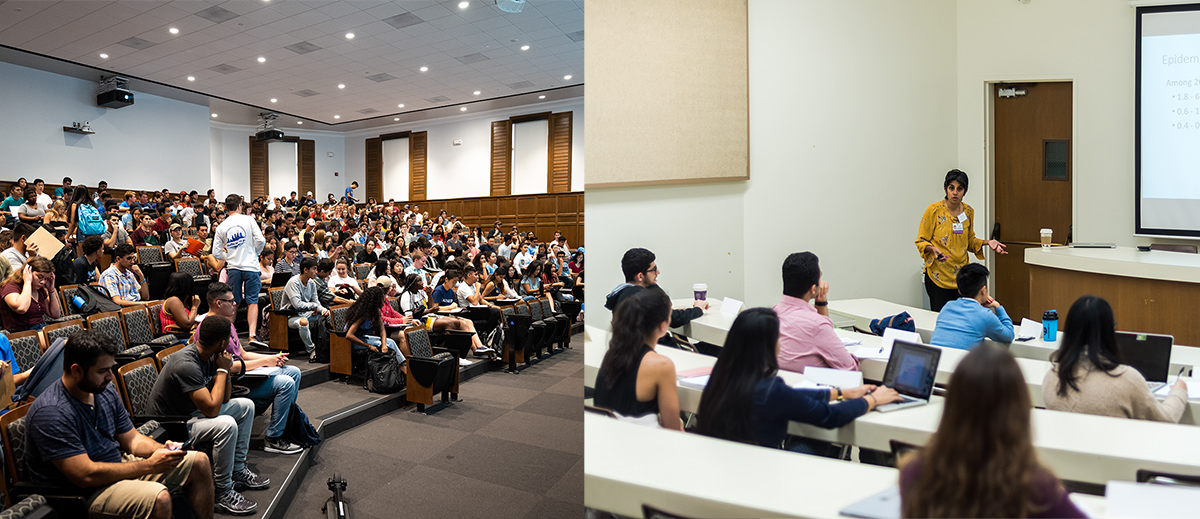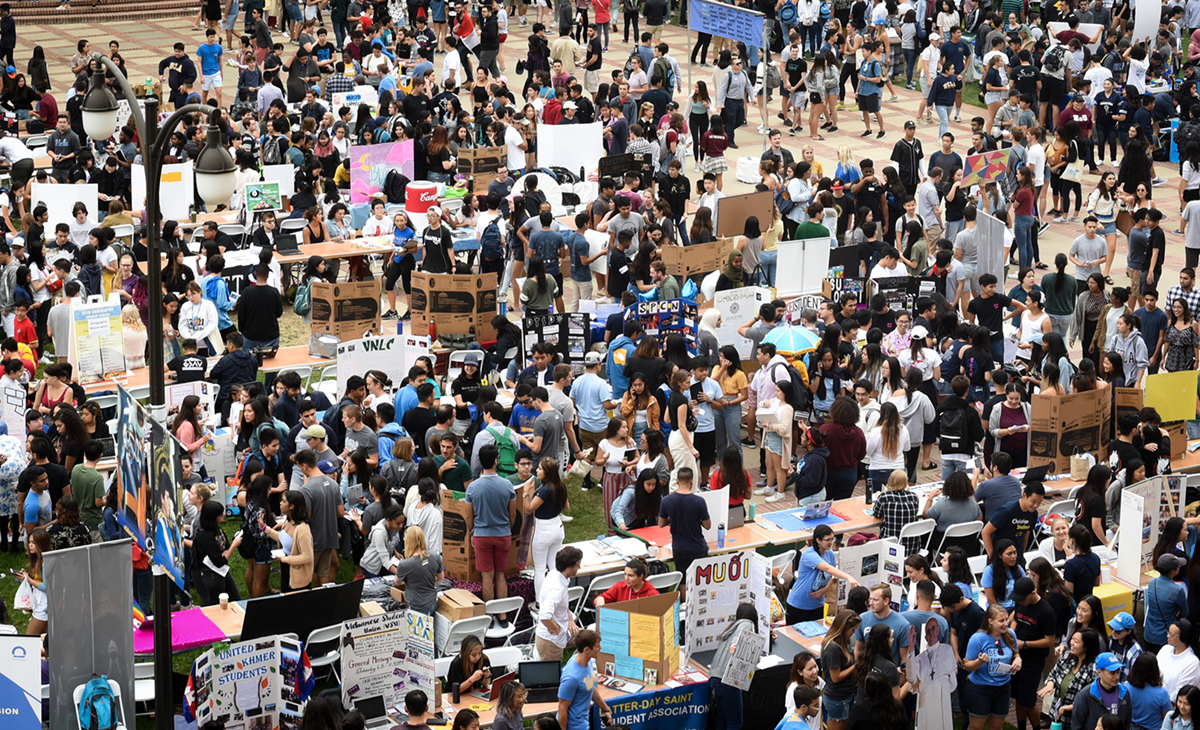Opinion: Graduating early includes benefits, from financial savings to jumpstart on career

(Elaine Guan/Daily Bruin)
By Laura Gulbinas
April 7, 2024 1:24 a.m.
This post was uploaded April 7 at 7:46 p.m.
People often say that college is the best four years of your life. It’s a time of self-discovery as students meet individuals from diverse backgrounds, expand their educational horizons and learn to live independently.
But what happens when you decide to cut this four-year experience short?
Graduating a quarter, semester or even a year early is possible at numerous undergraduate institutions due to flexible major requirements and class offerings. Many institutions like the University of California system accept credits from Advanced Placement courses completed in high school and allow students to apply credits taken at community colleges toward their degree.
Since I took both AP classes throughout high school and community college courses during my summers prior to entering UCLA, I started my first year with about 60 units – 40 from AP classes and 20 from community college classes. With these units, I already had sophomore standing in my first year, making graduating early a feasible option.
Graduating early holds many benefits, including financial savings and a head start on future endeavors – whether that may be postgraduate education, a career or other pursuits.
When I learned that graduating early was a possibility, I was enthusiastic about the chance to jumpstart my “real life,” neglecting to consider the possible detriments.
Even with UC’s Tuition Stability Plan, which keeps tuition at a fixed cost for up to six years for undergraduates, tuition and additional associated fees may place a financial burden on students and their families. Along with tuition, students must pay for living expenses, course materials, insurance and other personal necessities, resulting in an approximate total cost of $43,000 for California residents and $77,000 for nonresidents for each academic year.
These numbers ran through my head as I weighed the benefits of sacrificing a year of my education. While it is impossible to put a price on the year that I will be losing with my friends, peers and instructors, graduating a year early has allowed me to save money to finance my postgrad education.
Although I had not decided what I would be doing postgrad until my second year, I was eager to begin my journey beyond college. However, this excitement was soon met with the reality that to graduate early, I would have to condense my learning experience into three years before I could set out into the “real world.”
Setting out my three-year plan as a first-year, I calculated the number of classes I needed to take in the nine quarters and two summers I had to complete four years of credits. To graduate on time with my English major and philosophy minor, I would have to enroll in classes over the summer or take on a heavier course load during the academic year.
Either option would result in significant social sacrifices, costing time that could be spent participating in extracurricular activities, socializing or networking with peers.
These potential consequences of graduating early, however, did little to dissuade my desire. And so I began my three-year journey.
Although much of the work was done before my first year at UCLA through my AP classes in high school and my summers in community college, I still had to manage my time in Westwood efficiently to reach my goal.
The summer after my freshman year, I enrolled in four community college classes to fulfill my remaining general education requirements and minor prerequisites, which was a heavy course load on top of a summer job. While the courses were certainly challenging, the experience taught me how to prioritize my time and energy.
In my race against the clock to save a year without burning myself out, I had to organize my academic goals, explore what extracurricular activities were possible and schedule time for myself, my family and my friends.
The academic advising resources at UCLA played a key role in navigating my undergraduate education. Academic advisors supported me as I decided between courses, picked my minor and petitioned for more units or for community college classes to count toward my degree.
After all the logistical decisions, I still wanted to make the most out of my undergraduate experience.
While the educational component of the undergrad experience is certainly important, these four – or in my case, three – years are also a chance to enjoy exploring activities and building lasting relationships.
Having spent my first year deciding on which activities I found most meaningful and meeting more people than I could count, I entered my second year with a better understanding of what and who would be a part of my time at UCLA. When creating my class schedule, I made sure to allocate time for both my extracurricular commitments and social activities to ensure that I maintained a balanced undergraduate experience without sacrificing too much of my personal life.
During fall quarter of 2023, I took four classes instead of three to ensure all my graduation requirements were met. Taking a high course load on top of two part-time jobs, law school applications and extracurriculars meant I had to be even more purposeful and conscious of the time I had left.
My solution to a hectic schedule has always been a color-coded Google Calendar: gray for classes and gym time, orange for my on-campus job, purple for my off-campus job, blue for miscellaneous responsibilities and green for fun and spending time with family and friends. Color-coding not only allows me to stay on top of my responsibilities but also provides a visual representation of how I’m spending my time, allowing me to make adjustments where needed.
Although fulfilling my commitments was an important factor in graduating early, I discovered that it was crucial to not let my calendar succumb to the colors of class and work and ensure that every week had a healthy allotment of green.
Now, after finishing all my requirements for both my major and minor and having petitioned to graduate this spring, I can reflect on my three years as an undergraduate student at UCLA.
After filling my nine quarters and two summers with a full schedule of classes, extracurricular activities and social engagements, it is difficult to have any regrets. And while looking back fills me with pride over what I have accomplished and sentimentality for the memories I have cultivated, anticipating my next steps can still feel bittersweet.
As I await the beginning of my first year of law school in the fall, I am both anxious and hopeful for the next three years of my education and the chance to once again budget my time toward the things and people that mean the most to me.
For those considering graduating early – whether it may be due to financial considerations or an eagerness for life beyond college – it is important to weigh out the pros and cons and be mindful of your priorities when it comes to the college experience you desire.
The college experience I wanted may have gone by a little faster than most, but it has made me ever more grateful for the opportunities it provided and the people I have met along the way.






